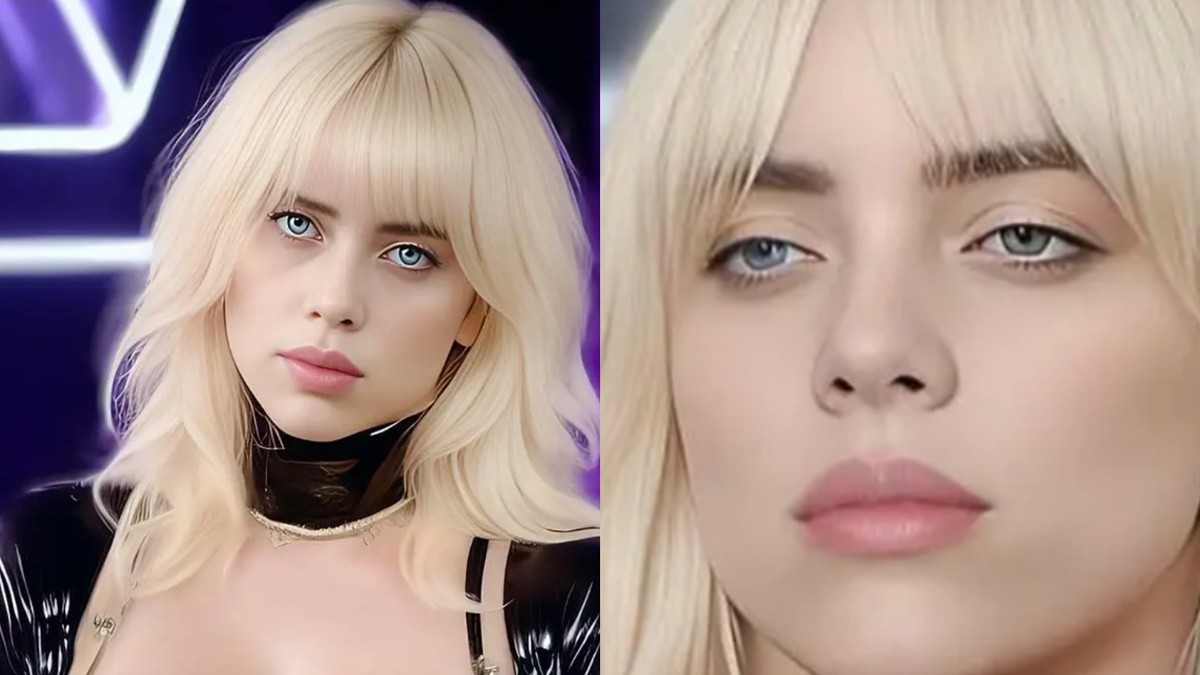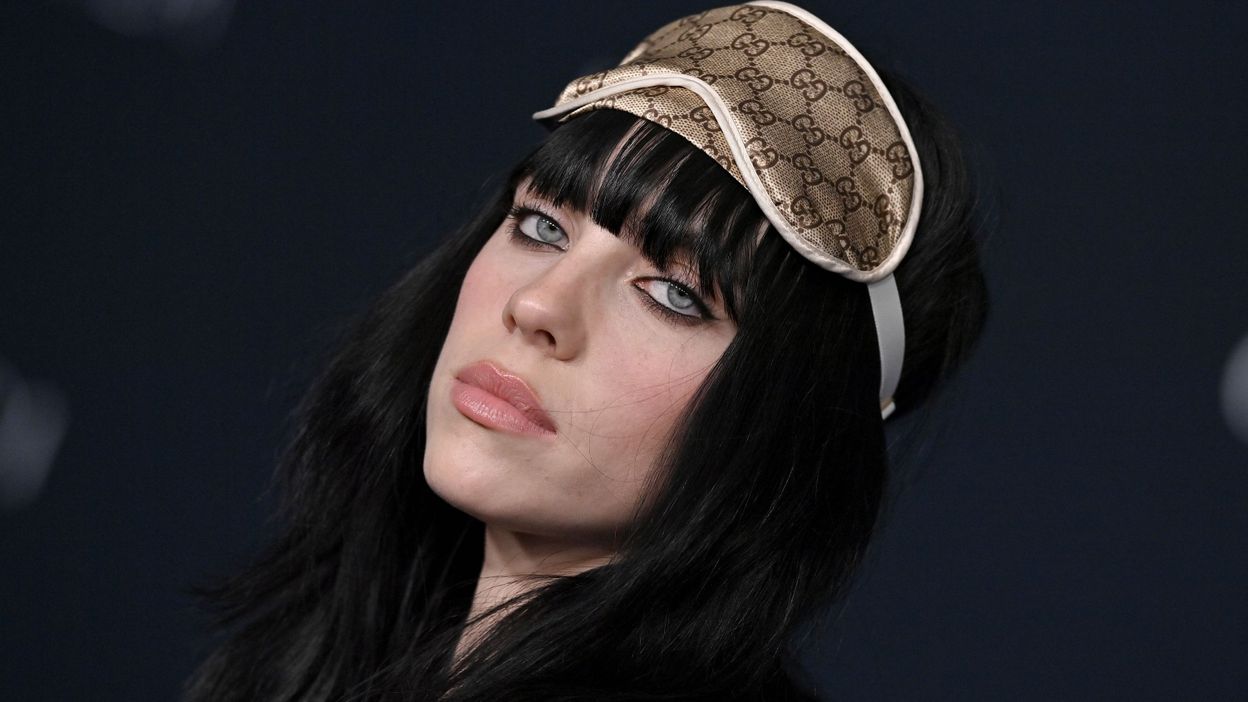Is the digital age ushering in a new era of exploitation, where the faces of celebrities and ordinary individuals alike are being manipulated and thrust into explicit content? The answer, tragically, is yes, as the insidious technology of deepfake porn continues to proliferate across the internet, posing significant threats to privacy, reputation, and personal safety.
This article explores the unsettling phenomenon of "Billie Eilish deepfake porn," dissecting its implications and providing actionable strategies to safeguard your online privacy in an increasingly vulnerable digital landscape. The issue extends far beyond mere curiosity; it delves into the ethics of artificial intelligence, the vulnerabilities of social media platforms, and the emotional impact on those targeted by these malicious creations.
The escalating nature of the problem is reflected in the soaring search terms related to this subject. Global searches for the singer Billie Eilish, specifically in relation to this disturbing content, have reached alarming levels. That number skyrocketed to 84,580, underscoring the widespread interest and potential exposure surrounding deepfake content. The prevalence of this disturbing trend demands a closer look at its impact and how individuals can navigate its potential harm.
One particular incident, reported across various media outlets, involved "deepfake AI porn" targeting Billie Eilish on TikTok. Sexualized clips of the star received a staggering 11,000,000 views before the content was eventually removed. The videos remained on the app for four days, allowing the illicit content to reach a vast audience. This situation highlights the rapid dissemination of deepfake material and the challenges of its control on social media platforms.
The creation and spread of this type of content is particularly concerning. The images are created using advanced techniques that manipulate existing footage to depict individuals in explicit situations, without their consent or knowledge. These deepfakes are not only a violation of privacy, but also potentially cause emotional distress and reputational damage to the individuals targeted.
The situation is further complicated by the singer's own public statements regarding her body image. Billie Eilish has spoken candidly about her relationship with her body, and the creation of such content is particularly heartbreaking. To have one's likeness exploited and weaponized in this way represents a profound violation. Given the singer's well-documented stance on objectification and her choice of clothing to avoid this, these deepfakes stand in stark contrast to her publicly stated values.
The technical sophistication behind the creation of these deepfakes is also worthy of investigation. In one reported instance, research involved analysis of Billie Eilish's images and videos, including a comparative analysis of her real and fake images. It involved over 36,000 frames of actual footage and 2,700 frames of deepfake footage. The outcomes of this deepfake research were quantified using matrices to compare the genuine images with the AI-generated imitations. The similarity between the legitimate and generated material was calculated to be 96.33%, showcasing the increasing precision of the AI technology.
Further complicating matters, the content is being amplified and spread through social media algorithms. Ultra-sexualized images of Billie Eilish, which have been likened to "deepfake pornography", have circulated on platforms such as TikTok, gaining significant reach due to the app's promotional tools. One of the key drivers of its rapid dissemination is the manner in which social media algorithms are designed to prioritize engagement, resulting in the widespread distribution of illicit content.
It is worth noting that deepfake technology has advanced rapidly in recent years, and its application is not limited to the entertainment industry. A 2020 report from deepfake detection company Sensity found that hundreds of explicit deepfake videos featuring Billie Eilish and Taylor Swift have been created with the help of AI.
The online community dedicated to the singer is an example of how far the issue has spread. With over 709k subscribers in the "billieeilish" community and 70k subscribers in the "billieeilish1" community, it is clear that discussions around Billie Eilish are widespread. It's evident that a dedicated fanbase is eager to engage with any and all things related to Billie Eilish. These fans, along with the general public, are now potentially exposed to deepfake content, regardless of their awareness of the technology itself.
The possibilities that artificial intelligence opens up are truly endless. Whether it's a striking portrait of Billie Eilish, a deepfake video of Harry Styles, or a viral TikTok art trend, the creative applications seem boundless. However, with great possibilities come great responsibilities. The creative potential of AI coexists with the potential for malicious use, and it is the responsibility of creators, platforms, and users to be mindful of this balance.
It is crucial to emphasize that the use of AI tools to create deepfake porn, especially involving non-consenting individuals, is unethical and potentially illegal. Respect for individual rights and digital safety must be paramount in all interactions with AI and other emerging technologies.
The question now is, what is "Billie Eilish deepfake" and how is it made? In essence, this technique uses artificial intelligence to create videos featuring the singer in performances she never did. This is not just about image alteration; it is a complex process that includes analyzing existing footage of the individual, generating new content that mimics their appearance, and synchronizing this content to create a convincing and often misleading video. The rise of this technology has led to an increasing need for vigilance and awareness.
AI technology enables users to swap faces in videos, as can be seen with a number of face swap tools that readily exist. This highlights the accessibility of the tools involved in deepfake creation, and makes the ethical and legal considerations all the more important.
Billie Eilish is known for her unique and introspective lyrics. Her ability to connect with her generation through her artistic vision helps her stand out from her peers. The singer has a substantial global presence, with a sizable community across multiple social media platforms dedicated to her work and persona. Her authenticity is a major factor in why she is so well-known.
Here's a look at the impact of deepfakes on Billie Eilish, and other celebrities, along with how they can be misused:
| Aspect | Details |
|---|---|
| Deepfake Definition | AI-generated videos that superimpose a person's face onto explicit content. |
| Target | Celebrities, public figures, and even ordinary individuals. |
| Distribution Channels | Social media platforms (TikTok, etc.), websites, and other online avenues. |
| Consequences | Reputational damage, emotional distress, privacy violations, and potential legal ramifications. |
| Ethical Considerations | Lack of consent, misuse of AI technology, and the potential for harm. |
| Prevention and Mitigation | Enhanced online security, awareness, and the development of tools to detect deepfakes. |
| Legal Implications | Existing and potential laws regarding the creation and distribution of non-consensual intimate images. |
| Impact on the Subject's Career | Damage to image, potential loss of endorsements, and other professional setbacks. |
| Public Response | Outrage, calls for greater regulation, and increased public awareness of deepfake technology. |
| Tools for Creation | Advanced AI software that is increasingly accessible to the general public. |
| Future of Technology | The potential for deepfakes to become more sophisticated, widespread, and difficult to detect. |
| Ethical Boundary | The importance of respecting individuals' rights and dignity. |
One can observe terminal output of a deepfake detection program, with comparisons between Billie Eilish and her deepfakes. Furthermore, an AI system can compare the differences between Billie Eilish and another subject.
The use of AI tools does not absolve individuals of the responsibility to respect ethical and legal norms. Do not create "Billie Eilish deepfake porn" or any other such content.
Many AI tools are now available for deepfake video creation, including voice generators. These voice generators allow users to create realistic Billie Eilish narrations and voiceovers by converting text to speech. This adds another layer of concern, since it is now possible to create deepfake videos with realistic audio. This can make detection even more difficult.
These events underscore the importance of awareness, vigilance, and education when interacting with digital content. The misuse of AI technologies has become a significant threat to privacy, and the future calls for vigilance.
In June 2023, Billie Eilish herself posted a rare picture in a bikini. The media coverage surrounding this photograph is an example of how an individual can be objectified, regardless of their expressed wishes. Such instances only serve to highlight how important it is for those in the public eye to be in control of their image.
The creation of "Billie Eilish deepfake porn," as well as content featuring other individuals, is a profound violation. It is an assault on their personal boundaries and a direct contradiction of their right to control their image and reputation. We must remember that people in the public eye are still human beings and deserve the same level of respect and dignity as anyone else.
Efforts to address this growing problem include developing detection tools, promoting media literacy, and advocating for stricter laws to deter the creation and distribution of malicious content. It is essential that action is taken by governments, social media platforms, and individuals to mitigate the potential harms and safeguard those vulnerable to deepfake technology.


